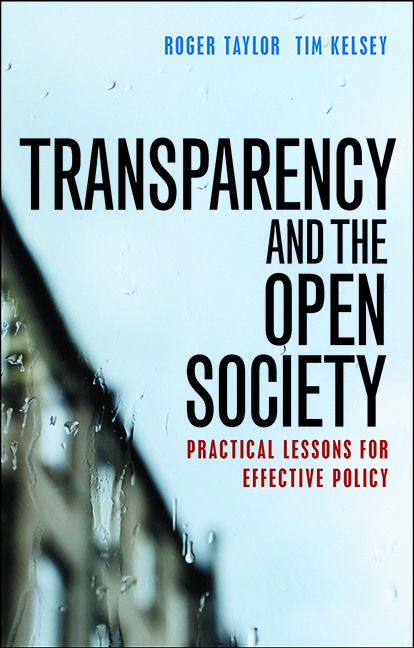11 - International initiatives
Published online by Cambridge University Press: 05 April 2022
Summary
Social audit and public reporting can be effective as part of a ‘sandwich’ strategy – when an organisation being subjected to transparency is forced to be more open about its performance to service users while at the same time being held to account by a governmental authority overseeing it. But if the organisation being subjected to transparency is government itself then who can apply the ‘downward’ pressure? If the constitutional separation of powers has ceased to function due to high-level corruption, how can government be held to account short of violent insurrection? The development of international transparency initiatives is one approach in trying to solve this problem.
The extractive industries – oil, gas, mining, logging – have a history of corruption in which those in power appropriate large amounts of wealth either through direct government control of these assets or through corrupt deals with multinational companies. The resulting ‘resource curse’ has been remarkably destructive in terms of human life and opportunity.
To take one example, the amount of oil in Nigeria could have made it a rich country. Oil was discovered there in 1956 and, by 1973, Nigeria was exporting 600 million barrels of oil a day, making it one of the top oil producers in the world. But between 1965 and 2004, per capita income fell and the proportion of people subsisting on less than $1 a day rose. It has been estimated that 90% of revenues go to 1% of the population and that, in 2003, 70% of the country's oil wealth was stolen. It is not just that the population was robbed, it is also that the country has been run to enable the expropriation of this wealth and in the process it has been prevented from developing in other ways.
Extractive industries became a focus of activists, many of whom advocated transparency as a solution. The Publish What You Pay initiative aimed to halt corruption in the extractive industries, a sector notorious for high levels of bribery. The idea was that if companies were forced to publish what they paid to the government and governments were forced to publish what they received, there would be little or no room for backhanders, kickbacks and bribery.
- Type
- Chapter
- Information
- Transparency and the Open SocietyPractical Lessons for Effective Policy, pp. 187 - 194Publisher: Bristol University PressPrint publication year: 2016



